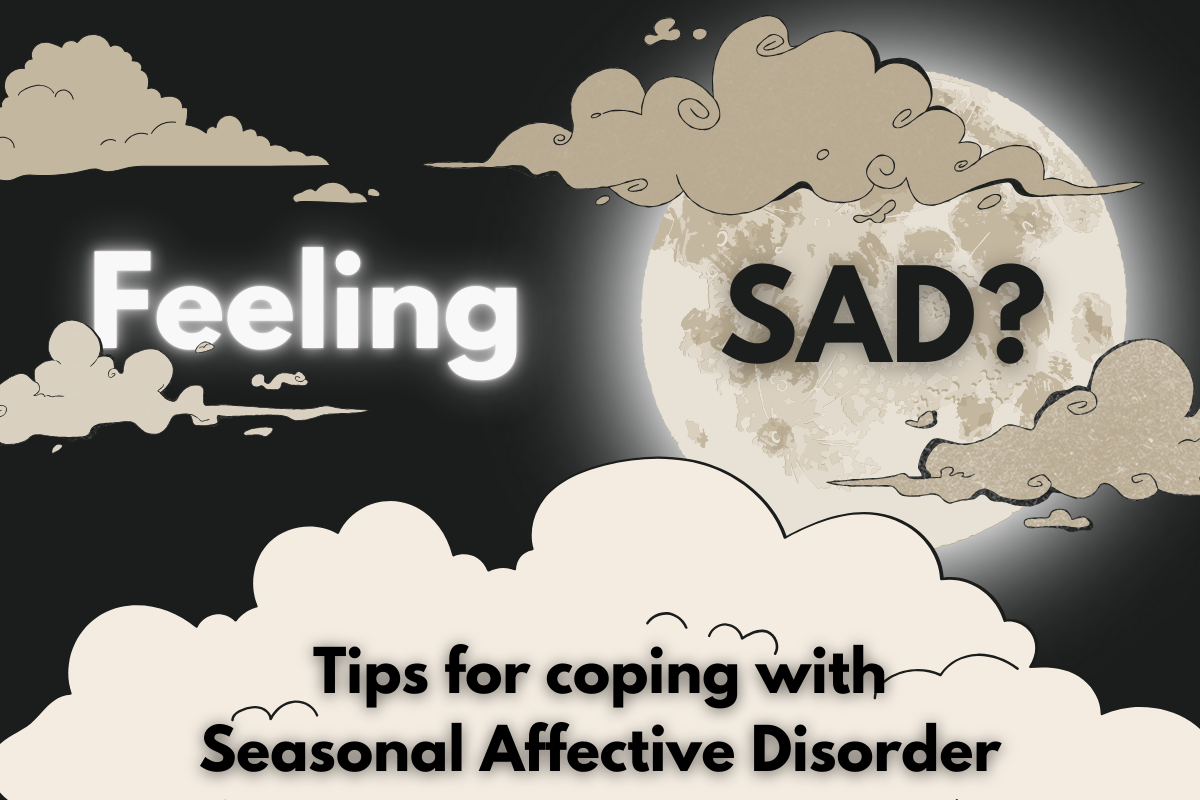
Short days, long nights, grey weather, and we don’t even have Christmas to look forward to! January and February can be tough on your mood, but did you know that there is a real medical condition that explains why you feel down in winter?
Seasonal Affective Disorder (SAD) is a condition where you experience low mood at particular times of the year, and most people who experience it feel worse during the winter months. It is a diagnosable condition, but it can affect all of us to some degree or another.
SAD is likely caused by lack of sunlight, which explains why we can feel worse during winter’s long hours of darkness.
SAD can make you feel much lower than usual, and can make you more likely to feel worried or annoyed by small things. It can also make you feel tired and sleepy, less motivated to do things and even make you feel hungrier!
But it’s not all gloomy (unlike the weather). There are lots of things you can do to tackle SAD symptoms. Read on to hear our 6 top tips for coping with SAD…

1. Seek Out Natural Light
As SAD is caused by lack of light, then it makes sense that more light can help you feel better!
Try to increase your exposure to natural light as much as you can. Spend time outside (though remember to wrap up warm), even only for a few minutes. When you’re inside, remember to open your curtains wide, and position yourself next to windows for maximum light.

2. Keep Moving
Staying active is great for your mental health generally, it’s even one of the 5 Ways To Wellbeing, and it is particularly effective at staving off the lethargic effects of SAD.
Although you will be tempted to just do nothing, try to keep moving through the winter season. If you exercise outside, for a walk or run for example, you’ll double the benefit by getting sunlight too!

3. Eat Well
Eating healthily is another thing that makes you feel good at any time of the year, that is especially important during winter. SAD can make you hungry for carbs and treats, and that’s ok! But make sure what you eat is balanced with lots of healthy fruits and vegetables.
Another thing to look out for with your diet over winter is getting enough Vitamin D. Vitamin D is usually produced in the skin from exposure to sunlight, but in the winter, almost everyone in the UK doesn’t get enough. Consider eating more Vitamin D rich food, like oily fish or mushrooms, eating foods fortified with Vitamin D, or taking Vitamin D supplements like cod liver oil.

4. Look After Yourself
You might notice a common thread between some of this advice, and it’s this: if it’s good for you generally, and it’s good for your mood, it’s good for SAD too.
Look after your physical health in all the ways you already know how – keep yourself moving, eat well, get enough sleep etc
And in the same way, look after your mental health – practice mindfulness, use healthy coping strategies, engage in positivity, use the 5 Ways to Wellbeing etc
Most of, be kind and compassionate do yourself. It’s ok to not feel your best at all times.

5. Light Therapy
If you can’t get enough natural light during the day, then light therapy could be a solution.
Light therapy consists of exposing yourself to artificial daylight from specially designed lamps or lightboxes for up to 30 minutes in the morning. These need to be made by certified manufacturers and clinically approved for light therapy to be effective.
Though it cannot replace natural light, many people see reduction in their symptoms and an improvement of their mood after using light therapy regularly.

6. Ask For Help
Importantly, if you are struggling with your mental health or wellbeing, you are not alone.
It is ok to ask for help. In fact, you should! Talk to your friends, family or trusted adults about how you’re feeling, and ask for support. If you’re a child or young person living in Derby City or Derbyshire, reach out and talk to us, either through this page or our app.
If you feel you need more help, whether for SAD or mental health throughout the year, contact your GP and ask for advice. There are people and organisations that can help you, and you deserve their support!
So there you have it. 6 ways you can feel better when the evenings are long and the skies are filled with clouds.
But, here’s a final positive note: the worst of the darkness is already behind us. The shortest day of the year in the UK is December 21st, so every day our days are going to get longer and brighter, at least until the longest day on June 21st.
Until then, use the wellbeing tips you can find on this page and elsewhere on our website, and most of all, look after yourself.
Back to Online Resources
